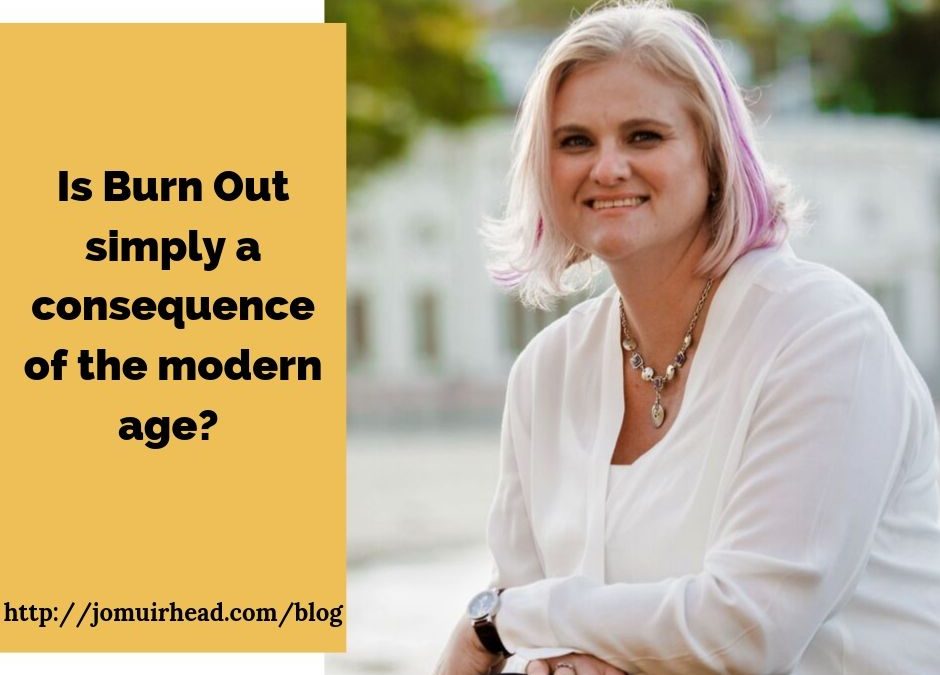1. Burnout is not just being tired
If you have ever heard yourself saying to someone, ‘Oh you’re Burnt Out, maybe you should get more sleep.’ Please stop!
Being Burnt Out is not a result of a lack of sleep. A lack of sleep suggests someone is tired. Being tired is fixed by nourishing sleep.
Being tired happens to everyone. You know that you are not Burnt Out when a good night’s sleep restores your ability to do the things you want to do, at the level of functioning you enjoy.
You are Burnt Out when you have reached a “state of mental and physical exhaustion caused by one’s professional life”[1]. For some this means a complete inability to function. I can’t get out of bed; I can’t stop crying, I can’t get my words right, my brain is a fog, I have angry outbursts, I avoid, I withdraw.
For others it leads to a new cycle of overcommitment in hours and endeavour. That feeling that I’m never good enough so I will work harder to do more to show myself I am OK, and everyone will think I’m OK.
We don’t fix Burnout with a good night’s sleep. Burnout would suggest sleep has been problematic for a long time. Did the lack of sleep cause the Burnout, probably not! The Burnout probably caused the sleep disturbance.
2. Burnout is the modern way of saying I’m stressed
Being Burnt Out is NOT the same as feeling stressed. However, stay in a state of stress and you will be more likely to reach a state of Burnout.
Put simply

If we want to suggest that Burnout is the modern way of explaining stress, then that is sad. This would suggest that we have a higher than healthy level of stress that we think is normal. Which suggests that we all need to evolve into people who can tolerate increasing levels of chronic stress because it’s the modern way of work and life.
It’s accepted medical science and has been known from complementary and functional medicine for a long time – Stress when left a unaddressed will increase dis-ease[4].
3. Burnout isn’t a real medical condition
You may be forgiven for thinking this. It wasn’t until May 2019 that the World Health Organisation gave the term Burnout some much-needed attention.
While some could’ve been tempted to dismiss burn–out as millennial jargon, it has now been added to the World Health Organisation’s (WHO) International Classification of Diseases, meaning that it will become a globally-recognised medical condition as of 2020
Which means we will be seeing more of it turn up in our therapy and treatment rooms, and it also means that we will have client’s and patients coming to us wanting answers to their Burnout.
These are but 3 common misconceptions that I hear time and again from people about Burnout. It is a poorly understood condition, yet one that effects our productivity, quality of life, and our health our ability to earn, our businesses our economy, actually this list could be even longer…
In an age when we are consistently being asked to do more with less; to be on 24/7, to be more, be better, do more, produce more, how then do we take responsibility for our own health and well being in our workplaces?
The intersection between our work and our health is becoming a more and more noticed place, and an increasingly difficult to ignore place. Medical evidence tells us that good work is good for our health [5]. However, social science is demonstrating that work can also create a level of dis-ease that suggests that work may not be good for our health[6].
Given we will spend approximately 90,000 hours [7] at work during our life time – approx. 1/3 – don’t you think that we need to pay attention to the heal effects and contributors of work?
Resources used to write this article
[1] Freudenberger, Herbert J PhD 1980
[3] https://www.mayoclinic.org/healthy-lifestyle/adult-health/in-depth/burnout/art-20046642
[4] https://www.healthline.com/health/stress/effects-on-body#1
[7] https://medium.com/@KassandraVaughn/you-will-spend-90-000-hours-of-your-lifetime-at-work-are-you-happy-5a2b5b0120ff


